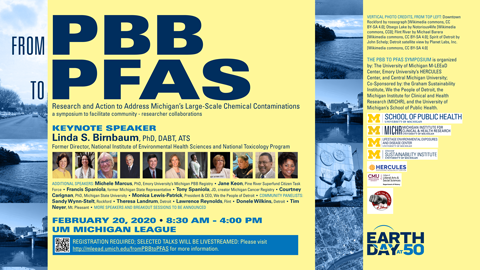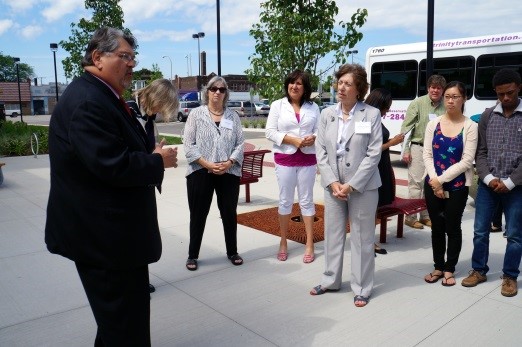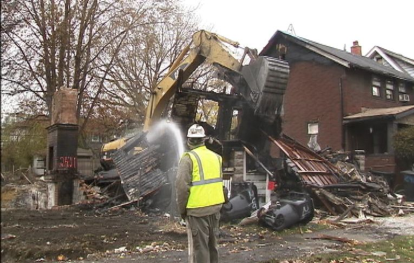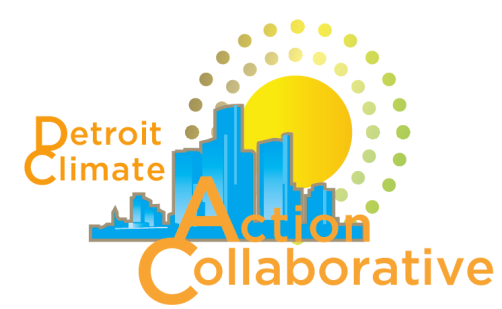Community Engagement Core: Projects and Events
Central to the CEC’s aims are creating opportunities to increase awareness and understanding of environmental health research, and for multi-directional dialogue between M-LEEaD Center researchers, community members and policy makers. Some of our recent CEC activities are highlighted below, illustrating our multi-faceted environmental health promotion efforts.
Disseminating Environmental Health Science Research
These materials were created collaboratively by three EHSCC Community Engagement Cores: The Community Engagement Core (CEC) of the University of Michigan Lifestage Environment Exposures and Disease Center (MLEEaD), Wayne State’s Center for Urban Responses to Environmental Stressors (CURES), and Texas A&M’s Center for Translational Environmental Health Research. The goal of these materials is to provide resources that can enhance dialogue between environmental health science researchers and decision makers. This was supported by a 2017 Collaborative Supplement.
- Best Practices for Communicating Science Fact Sheet (PDF)
- Best Practices References (PDF)
- Guidelines for Engaging Policy Makers (PDF)
- Evaluating Translated Materials (PDF)
- Flesch-Kincaid readability scale
Events
- Thu February 20 2020
- Symposium: “From PBB to PFAS: Research and Action to Address Michigan’s Large Scale Chemical Contaminations”
- Media:

Click here to view on YouTube - Description: A symposium to facilitate community - researcher collaborations, featuring:
- Keynote address by Linda S. Birnbaum, PhD, DABT, ATS (Director (retired), Scientist Emeritus, National Institute of Environmental Health Sciences and National Toxicology Program). Keynote will be live-streamed and recorded for later viewing.
- Presentations by community residents and academic researchers working on PBB and PFAS health impacts, as well as breakout groups focused on strategies for building effective community-academic collaborations:
- Michele Marcus, PhD (Emory University’s Michigan PBB Registry)
- Jane Keon (Pine River Superfund Citizen Task Force)
- Francis Spaniola (former Michigan State Representative)
- Tony Spaniola, JD (creator Michigan Cancer Registry)
- Courtney Carignan, PhD (Michigan State University)
- Monica Lewis-Patrick (President & CEO, We the People of Detroit)
- COMMUNITY PANELISTS: Sandy Wynn-Stelt (Rockford); Theresa Landrum (Detroit); Lawrence Reynolds (Flint); Donele Wilkins (Detroit); Tim Neyer (Mt. Pleasant).
- Sponsor: The University of Michigan M-LEEaD Center, Emory University’s HERCULES Center, and Central Michigan University
Building Equitable Partnerships for Environmental Justice Curriculum
Updated: August 22, 2018
The curriculum was developed by the Community Engagement Cores of the University of Michigan Lifestage Environmental Exposures and Disease Center and the University of California-Davis Environmental Health Sciences Center. The goal of the curriculum is to strengthen the capacity among community leaders in environmental justice movements and academic researchers to develop collaborative, equitable and effective partnerships to promote mutual learning and address environmental issues in communities.
- Building Equitable Partnerships for Environmental Justice Curriculum (PDF)
- Building Equitable Partnerships for Environmental Justice Curriculum - Appendices (PDF)
Community Forum featuring Linda Birnbaum

On June 18, 2013, the M-LEEAD Center and the CEC hosted Linda Birnbaum, Director of the NIEHS, at a Community Forum on the topic of air pollution. Invited panelists included Michelle Martinez, Public Policy Associate, Consortium of Hispanic Agencies; Pamela Smith, Owner/Managing Partner, Regeneration LLC; Rhonda Anderson, EJ Organizer, Sierra Club; Stuart Batterman, Professor Environmental Health Sciences School of Public Health and M-LEEAD Center Member; and Wilhemina McLemore, Detroit District Supervisor, Michigan Department of Environmental Quality.
For an informative article on the 2013 Detroit Community Forum, please visit the NIEHS Environmental Factor Newsletter.
The NIEHS sponsors Community Forums in cities throughout the United States on the general theme of environmental impacts on human health. For a review of past community forums, visit the NIEHS website. For an article on a past forum, please visit the NIEHS Environmental Factor Newsletter.
The purpose of the community forums is to bring together members of the public who are interested in public health and the environment with NIEHS and other federal, state, and local government health officials; environmental health professionals; and disease and environmental action groups. The forums provide a platform for open dialogue to establish better coordination among the public and health professionals working on community exposures, industrial exposures, and other environmental issues. These forums also provide an opportunity to promote local and state media coverage of environmental health issues to broaden public understanding. Community forums are neutral, non-partisan events, where all panelists are viewed as experts on best-practices not advocates for a cause.
Pilot Project: Translating Health Data Into Action and Policy (THDAP)

Abstract: The goal of this project is to conduct an interdisciplinary assessment of potential public health impacts associated with the Detroit Blight Elimination Project. By partnering with the University of Michigan School of Public Health Lifestage Environmental Exposure & Disease Center’s Exposure Assessment and Community Outreach & Engagement Core, the initial epidemiological analyses of current environmental, health and behavioral data collected in Detroit during and after demolition phases will serve to inform community engagement projects and future environmental exposure assessment studies in this vulnerable urban population. The study team, two of whom are employed by the City of Detroit, has been able to access and develop databases and data streams to address these objectives: 1) respond acutely to public health questions and concerns posed by city agencies during the current and future blight elimination activities; 2) share health outcome information with community and academic partners to actively inform ongoing public health efforts and demolition activities; and, 3) engage public health graduate students who can expand capacity necessary for epidemiologic analyses. While environmental assessments of exposures will be limited during this pilot phase, epidemiologic analyses will be used to assess impacts upon particular vulnerable populations (e.g. young, elderly, chronically ill) in line with Center’s theme of Lifestage Exposure and Adult Disease and will greatly contribute to the development of future long-term studies.
Demolition in the city of Detroit has significant public health impacts . The CEC has facilitated a fruitful relationship between Green Door Initiative and THDAP leaders to involve community members in data collection, resulting in a multi-directional collaboration in accordance with the CEC’s aims.
View other Center funded pilot projects here.

Detroit Climate Action Collaborative
The CEC Project Coordinator, Sharon Sand, serves on the Public Health Workgroup of the Detroit Climate Action Collaborative (DCAC), an initiative of Detroiters Working for Environmental Justice (DWEJ). This group includes representatives from environmental, community, governmental, scientific, academic, health, business and other sectors. DCAC was established to help the City of Detroit identify short- and long-term actions to reduce greenhouse gas (GHG) emissions, provide expert advice on the most credible, aggressive and economically viable targets, develop a comprehensive Climate Action Plan, and to ready Detroiters for coping with the impacts of climate change.
